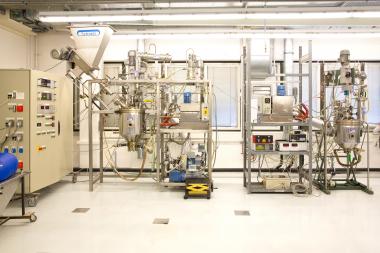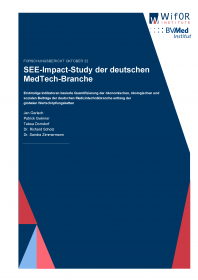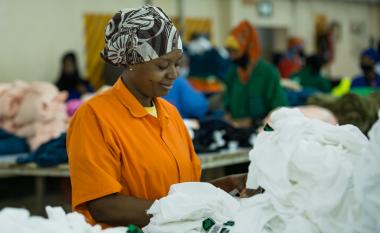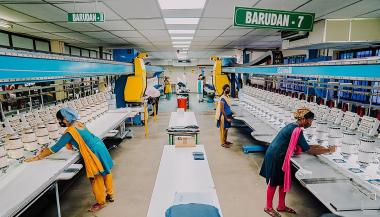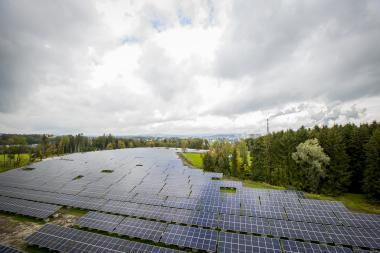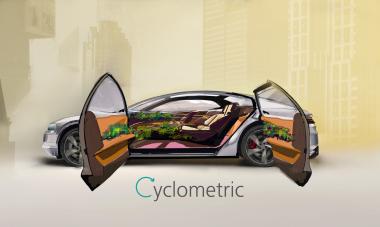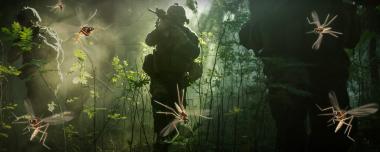Inhomogene Textilabfälle zu neuen hochwertigen Produkten machen
- DITF beteiligt sich am internationalen Konsortium zum Kunststoffrecycling ‚WhiteCycle‘
Ein Konsortium aus 16 öffentlichen und privatwirtschaftlichen Organisationen hat sich unter dem Namen ‚WhiteCycle‘ zusammengeschlossen, um ein umfassendes und geschlossenes Recyclingsystem für Plastikabfälle zu etablieren. Die Deutschen Institute für Textil- und Faserforschung Denkendorf (DITF) werden als Teil des Konsortiums ihren Beitrag mit einem neuen Syntheseverfahren zur Verarbeitung von recycelten Kunststoffen leisten.
Unter Leitung der Michelin Group Frankreich konstituierte sich das Konsortium ‚WhiteCycle‘ Anfang Juli 2022. Ziel der europäischen Initiative ist es, einen Wirtschaftskreislauf zu etablieren, um inhomogene Textilabfälle aus verschiedenen Materialien aufzubereiten und daraus neue, hochwertige Produkte herzustellen. Dieses Vorhaben soll dazu beitragen, die von der Europäischen Union gesteckten Ziele bei der Reduktion von CO2-Emissionen bis zum Jahr 2030 zu erreichen.
Komplex aufgebaute, textilhaltige PET-Abfälle wie Reifen, Schläuche oder mehrlagige Verbundtextilien aus dem Bekleidungsbereich sind bisher schwer oder gar nicht recycelbar. Unter dem WhiteCycle-Netzwerk werden mehrere Projekte und Forschungsansätze zusammengeführt, die sich des Problems annehmen und neue Lösungsansätze liefern sollen.
Die DITF werden ein bestehendes PET-Syntheseverfahren an neuartige recycelte Monomere anpassen. Das zu bewältigende Problem besteht in den Verunreinigungen im Ausgangsmaterial, die durch dessen inhomogene Zusammensetzung bedingt sind.
Zusammen mit dem Projektpartner Kordsa Teknik Textil A.S. (Türkei) entwickeln die DITF neue Syntheserezepte. Sie haben zum Ziel, mögliche Nachteile abzustellen, die durch verbleibende Verunreinigung der Monomere zustande kommen. Denn trotz einer Reinigung der Monomere vor deren Weiterverarbeitung können nicht alle Verunreinigungen entfernt werden. Die Ansätze, die dabei verfolgt werden, sind anspruchsvoll. So müssen Art und Menge der verwendeten Zusatzstoffe spezifisch angepasst werden. Dazu gehören Katalysatoren, Verarbeitungshilfsmittel, Nukleierungs- und Kupplungsmittel sowie Kettenverlängerer. Auf diese Weise ist es möglich, die negativen Auswirkungen von unbekannten Verunreinigungen zu vermeiden. Damit verbessern sich die Materialeigenschaften der wiederverwerteten Kunststoffe, da sie langfristig thermisch stabilisiert werden, was wiederum in einer Verbesserung der mechanischen und rheologischen Eigenschaften resultiert. Das modifizierte Verfahren soll es ermöglichen, dass recyceltes PET (r-PET) die gleichen Eigenschaften wie virgin PET aufweist.
Die Konsortialpartner verfolgen andere Ansätze, um eine verbesserte Recyclingrate und hochwertigere r-PET-Produkte zu erzeugen: Optimierte Sortiertechnologien für die sortenreine Trennung von Abfällen gehören ebenso dazu wie eine enzymbasierte Behandlung von Kunststoffen, um sie auf nachhaltigem Weg in Monomere aufzuspalten. Letztlich wird auch die hochqualitative Fertigung neuer Produkte aus den recycelten Kunststoffen dazu beitragen, den Rohstoffkreislauf zu schließen.
Deutsche Institute für Textil- und Faserforschung Kunststoffrecycling PET Kreislaufwirtschaft Wertstoffkreisläufe
Deutsche Institute für Textil- und Faserforschung


